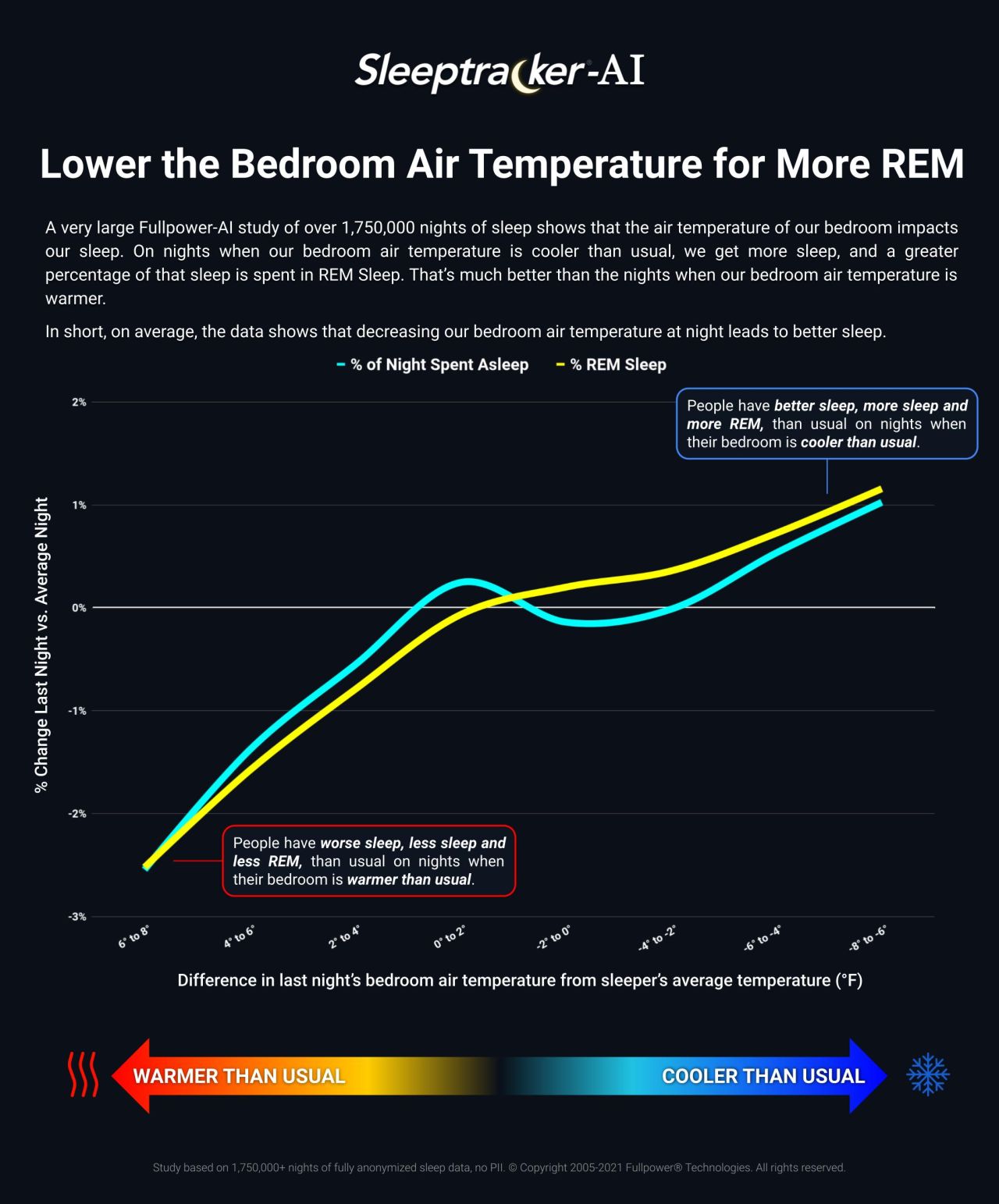A new, very large study confirms that a cooler room yields more REM sleep!
(https://www.sleeptracker.com/)
A very large Fullpower-AI study of over 1,750,000 nights of sleep shows that the air temperature of our bedroom impacts our sleep. On nights when our bedroom air temperature is cooler than usual, we get more sleep, and a more significant percentage of that sleep is spent in REM Sleep. That's much better than the nights when our bedroom air temperature is warmer.
In short, on average, the data shows that decreasing our bedroom air temperature at night leads to better sleep.
Here are a few helpful links:
Climate change and sleep impact study (deviations from mean temperature are investigated)
https://www.science.org/doi/10.1126/sciadv.1601555
"Our analysis of historical data demonstrates a robust link between atypical nightly temperatures and insufficient sleep that is largest during the summer and among lower-income individuals and the elderly. Moreover, across both our city-level and geographic grid cell–level forecasts, we predict that every location in the United States may experience an increased incidence of insufficient sleep due to nighttime warming induced by future climate change."
Another interesting abstract:
Associations of bedroom temperature and ventilation with sleep quality
https://www.tandfonline.com/doi/abs/10.1080/23744731.2020.1756664?src=recsys&journalCode=uhvc21
"Sleep efficiency (ratio of time asleep to time in bed) and rapid eye movement (REM) sleep (%) were both negatively correlated with bedroom operative temperature; as bedroom operative temperature increases by 1 K, the estimate of sleep efficiency and REM sleep percentage decrease by 1.036% and 1.647%, respectively."
